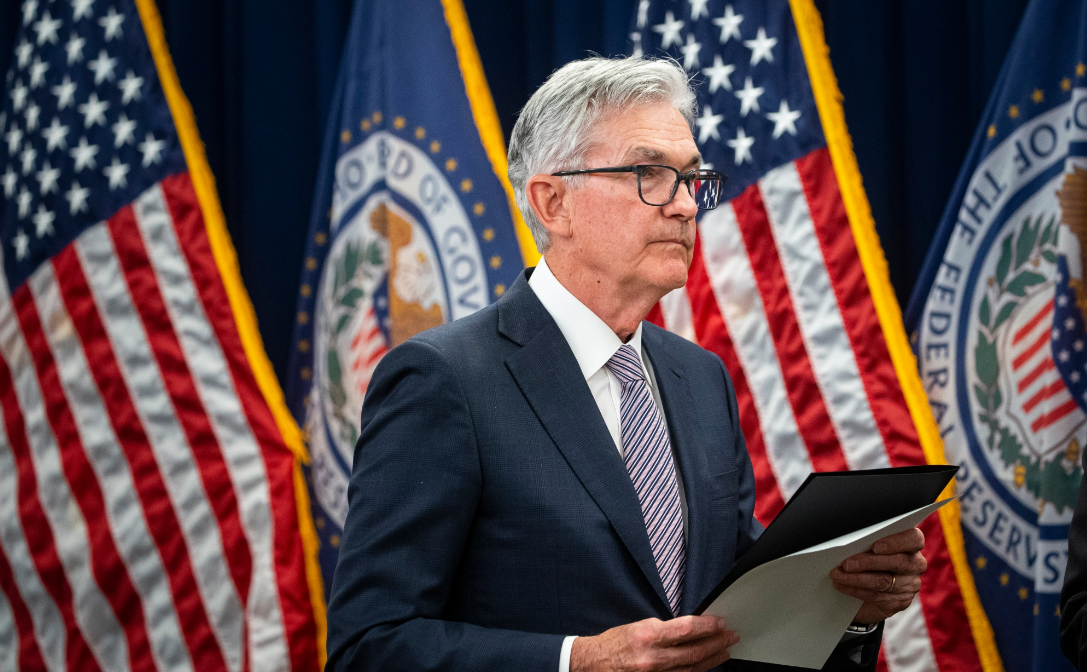Thu Jun 16, 2022
Thursday / June 16
The Fed's rate hike
The Fed decided to hike rates on Wednesday. This rate hike was the biggest increase since 1994. In accordance with the markets’ expectations, the federal funding rate reached 1.5 – 1.75 range.
We don't seek to put people out of work,” Powell told reporters on Wednesday. “But we also think that you really can't have the kind of labor market we want without price stability.”
Officials of the Fed's Federal Open Market Committee (FOMC) are seeing steady increases towards the 3.4% rate at the end of the year, including October increases of 75 basis points for the rest of this year.
This will be the highest level since January 2008, and, according to Fed forecasts, slowing the economy markedly in the coming months is enough to lead to an increase in unemployment.
Interest rate futures markets see an 85% probability that the Fed will raise rates by 75 basis points at its policy meeting in July.
Powell said a 50 or 75 basis point increase at the July meeting could be "highly likely."
The range of forecasts for economic growth approached zero in 2023, although no Fed policymakers directly predicted a recession. Officials agreed that there were risks that growth would be slower than expected and that inflation and unemployment would be higher.
Kansas City Fed President Esther George was the only policymaker to oppose Wednesday's decision, opting for a half-percentage-point rate hike.
European leaders go to Kyiv
The leaders of the three largest European Union countries Germany, France and Italy are expected to visit Kyiv on Thursday to show their support for Ukraine resisting the Russian attack.
The visit of German Chancellor Olaf Scholz, French President Emmanuel Macron and Italian Prime Minister Mario Draghi has been planned weeks ago.
Kyiv has accused France, Germany and, to a lesser extent, Italy of standing up in their support for Ukraine, being slow to deliver weapons and putting their own well-being ahead of Ukraine's freedom and security.
Oleksiy Arestovych, an adviser to Ukrainian President Volodymyr Zelenskiy, told the German newspaper Bild this week that he was concerned that the three leaders would put pressure on Kyiv to accept a peace deal in favor of Russian President Vladimir Putin.
They will say that we need to end the war that is causing food problems and economic problems, Arestovych said, referring to Macron's remarks this month.
Zelensky is expected to force his visitors to send more weapons to help his embattled army resist the Russian invaders.
US stocks
Stocks rose on Wednesday after the Fed raised interest rates.
The Dow Jones Industrial Average jumped 303.70 points, or 1%, to close at 30,668.53, breaking a five-day losing streak. The S&P 500 rose 1.46% to 3,789.99, while the Nasdaq Composite Index finished the day up 2.5% at 11,099.15.
The market was expecting a 75 basis point rate hike on Wednesday, but Powell's readiness to make another hike of this size surprised the markets.
Phone calls
US President Joe Biden told Ukrainian President Volodymyr Zelenskyy in a telephone interview on Wednesday that his administration would send another $1 billion in weapons to the country under Russian attack.
Biden said that the United States also plans to send another $ 225 million in humanitarian aid.
Xi-Putin line
Chinese President Xi Jinping has had his second phone call with his Russian counterpart Vladimir Putin since the invasion of Ukraine, Chinese state broadcaster CCTV has reported.
At the meeting, President Xi noted in the call that China is willing to maintain mutual support with Russia on issues related to sovereignty, security and issues of great concern."
A statement from the Kremlin on the meeting said that the Chinese president highlighted "legitimacy of Russia's actions in protecting its core national interests in the face of security challenges posed by external forces."
